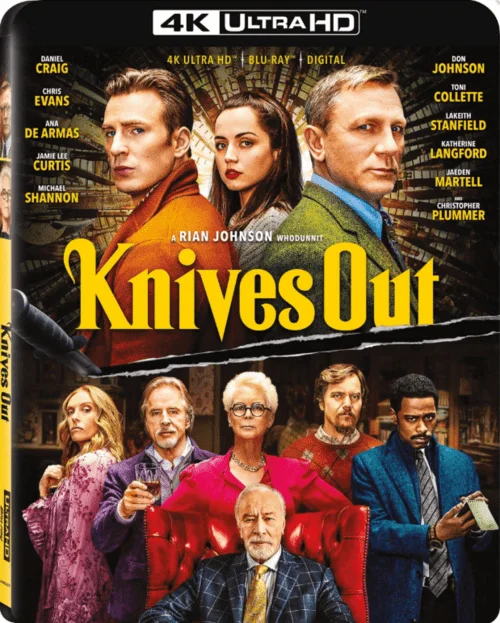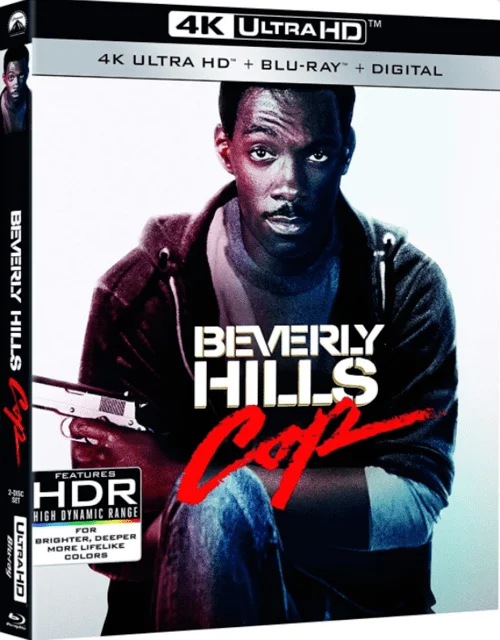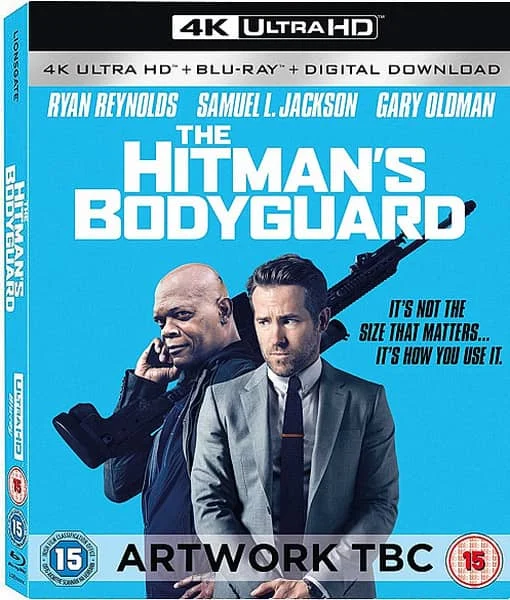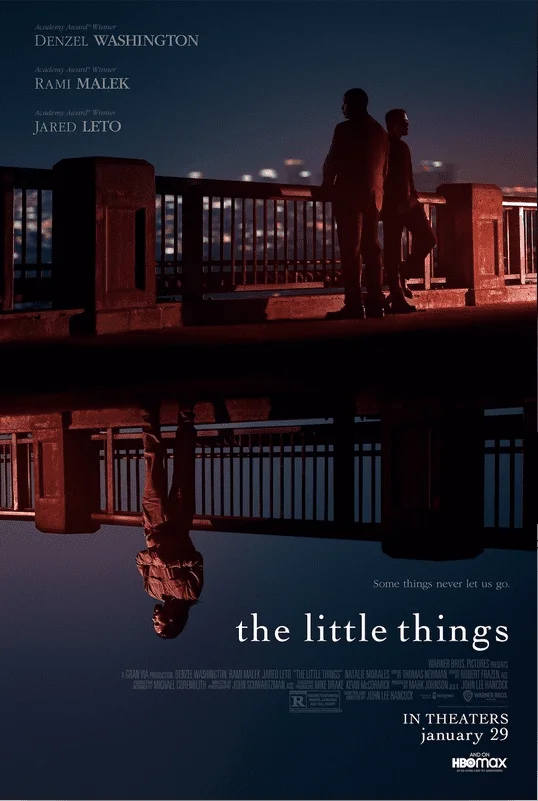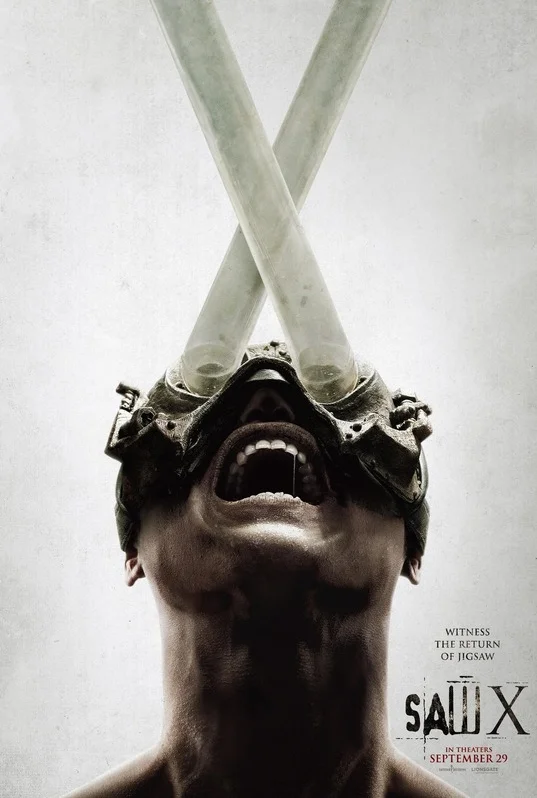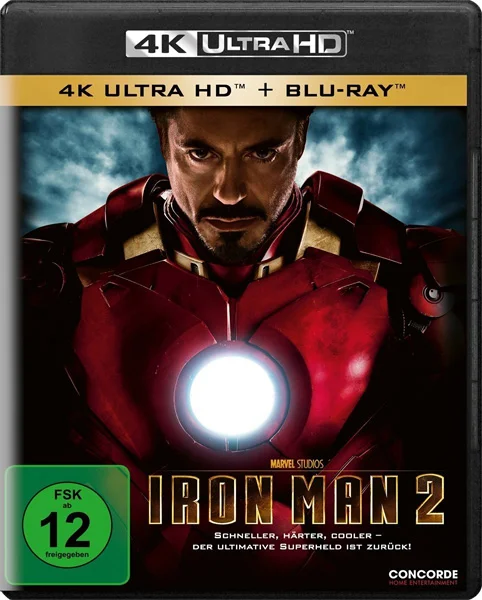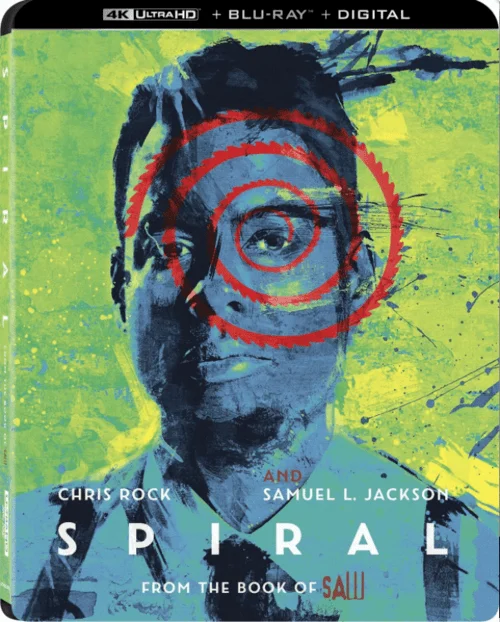
Spiral From the Book of Saw 4K 2021 Ultra HD 2160p
Cast: Chris Rock, Samuel L. Jackson, Max Minghella, Marisol Nichols, Dan Petronijevic, Richard Zeppieri, Patrick McManus, Ali Johnson, Zoie Palmer, Dylan Roberts, K.C. Collins, Edie Inksetter, Nazneen Contractor, Thomas Mitchell, Carvin Winans, Leila Leigh, Chad Camilleri, Jerry Getty.

Again tests at the cost of life, again a detective who will try to get to the psychopath-puppeteer (by the way, he is played here by Chris Rock, and another of the roles is played by Samuel L. Jackson - names, in general, are too unusual even for "Saw "), And, of course, tons of blood.
Spiral From the Book of Saw 4K Review
Zeke Banks (Chris Rock) is New York's last honest cop. Several years ago, he caught his partner in deception and murder, he was imprisoned, but the hero's reputation was tarnished. Now Zeke is reputed to be a rat, endures caustic jokes from colleagues and comparisons with the legendary father, Police Chief Marcus (Samuel L. Jackson), who kept all crime in hand, and now chilling out on retirement. Soon, the corpses of police officers begin to be found on the streets - one was crushed by a train, the other lies dead from an electric shock, and all this is terribly reminiscent of the murders of Saw. John Kramer died, and his followers did not disdain to repeat the fate of the teacher, so suspicions fall on a new, hitherto unknown imitator. Cool Zeke demands to give him this case, takes with him an annoying young partner (Max Minghella) and goes in search of the villain. True, there is a chance that before he gets to the maniac, half of the entire department will already be dead.
"Saw" has already passed its second ten years. Starting as a revisionist low-budget thriller, the series has gradually turned into bloody and cynical torture porn - in other words, "torture porn", a term that journalists now use when they want to label a movie that shows violence in every detail. But the franchise did not work on the bread and circuits principle: it, among other things, understood the aftermath of 9/11 and the US invasion of Iraq. John Kramer, a white cisgender man, after a series of disasters realized the fragility of the world around him and went on a crusade to teach people to live "right." What is "right", of course, is not a question for him, but nihilism and assertiveness take their toll: like the American military in Abu Ghraib prison, he bent the line and made violence his testament. Saw is a movie not only about torture and abuse, but also about how the contemplation of these horrors becomes complicity and why aggression, even with the best intentions, is not able to change the world.
But time is passing. The incident in Abu Ghraib, as well as the incident with the Twin Towers, of course, did not erase from memories (it would be difficult to forget such a comprehensive trauma even in a century), but faded into the background. In the era of police brutality and BLM, and even more so Trumpism, coronavirus and the new Cold War environment, thinking about the invasion of Iraq is the lot of the eternally nostalgic (or eternally grieving). Saw: The Spiral is nothing more than a desperate, albeit clumsy vivisection of American society in the context of internal state violence. It will soon become clear that every punished cop was soiled in one way or another: he killed innocents, stole, covered his colleagues. Compared to the Oscar-winning and, in general, okay, but eerily sugary short film "Two Distant Strangers", where a black man lives a groundhog day, fleeing from a crazy police officer, "Spiral" looks like a much more topical and elegant film.
Now the victims of the maniac are conventional villains: people who would shoot you in the back without batting an eye; people whose official mandate includes violence (with the only exception that it is violence for the common good). The classic dilemma of "Saw", in general, has been preserved, but turned inside out: "Spiral" is not about private manifestations of cowardice, be it a greedy insurance agent or former criminals who returned to a criminal life, but about the system in general. Rather, even about who constructs and protects this system. How to suppress a repressive authority? Will the death of several of its representatives change anything, and will their killer become the same criminal? No matter how ironic it may sound, the American franchise in the context of post-Soviet reality now looks no less relevant.
The arbitrariness of the police and other power structures is, of course, an urgent problem not only in our state. It is much more difficult here not to identify yourself with a maniac, but it is in this dilemma that the entire complexity of the conflict of the new part lies. Obviously, everyone loves Saw for the bloody murders - and here they are. Not as much as in all the previous episodes (Spiral in its peacefulness resembles the original Wang's film), but severed fingers and torn tongues are guaranteed. Another thing is that the franchise often went on the verge of audience perception. On the one hand, there is a murderer with a moral code, on the other, his immoral victims. It's easy to side with Kramer and his comrades, but not worth it. In a world where there is already so much violence, the self-proclaimed messiah only begins to multiply it.
Surely someone else will call "Saw" blaxploitation: they say, the heroes have become black, rap is playing everywhere, and the problem of police arbitrariness is pure fawning on BLM. There is, of course, no exploitation in Spiral: the franchise has simply always cleverly picked up the Zeitgeist, from the invasion of Iraq to the popularity of previously credited rock. But there is a comic tone that has appeared for the first time in many years, sometimes irony and caustic grins. If the appearance of Chris Rock brought something to the franchise, it is some kind of freshness, enthusiasm, if not revisionist (far from rethinking the entire series), then fan. In general, just such a movie comes out: for fans who were waiting not for a lousy Jigsaw, but for a real revival of history. And also for those who are too lazy to watch all the sequels. To understand the events of "Spiral" you just need to get acquainted with the first part and a fluent wikipedia reading of the plot of all the others. A universal in relation to the audience, a very funny and old-school witty film - this is what horror reboots, remakes and postmodern sequels have been lacking in recent years. John Kramer is dead, long live John Kramer!
Info Blu-ray
Video
Codec: HEVC / H.265
Resolution: Native 4K (2160p)
HDR: HDR10
Aspect ratio: 2.38:1
Original aspect ratio: 2.39:1
Audio
English: Dolby Atmos
English: DTS-HD Master Audio 7.1 (48kHz, 24-bit)
English: Dolby Digital 5.1
Subtitles
English, English SDH, French, Spanish.
File size: 15.4 GB
Trailer Spiral From the Book of Saw 4K 2021 Ultra HD 2160p
Latest added movies
Comments on the movie
Add a comment
 like
like do not like
do not like